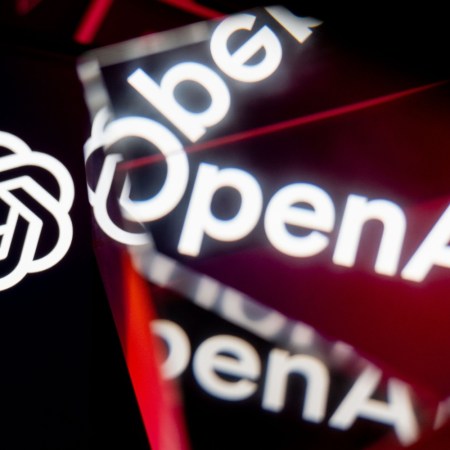When most people talk about artificial intelligence replacing humans, they tend to lean toward relatively benign situations or those far in the future. Sure, AI might replace some jobs, but maybe that will lead to universal basic income. Then there’s the dystopian argument — AI could turn on us! — but most people don’t take that seriously, at least not yet. But what if I told you that the threat posed by AI isn’t just urgent, it’s exacerbating a crisis for a resource that’s vital to human life?
We’ve been experiencing a water scarcity problem in the U.S. for years, powered by overuse, waste and climate change. Now, the proliferating data centers that power AI are accelerating the crisis by sucking up exorbitant amounts of water, according to a new report at Bloomberg, with 58% of all of these facilities in the U.S. located in places of high or extremely high water stress.
AI data centers, built for companies like OpenAI, Google, Microsoft, Amazon and xAI, have been criticized for their huge energy demands, but their eye-popping water usage hasn’t been as publicized. As Bloomberg explains, water is used both to cool the hardware at these server warehouses and for the “water-hungry power plants” they rely on. To put that jargon into perspective, the problem here is that the average 100-megawatt hyperscale data center in the U.S. uses about two million liters of water a day, which is the equivalent of 6,500 households, per the International Energy Agency. The kicker? Many data centers currently in the works are much larger than that.
While data centers aren’t a new phenomenon, their scale and pace of construction has dramatically increased due to the demands of generative AI. “Fundamentally, it is just computing, but a generative AI training cluster might consume seven or eight times more energy than a typical computing workload,” Noman Bashir, a Computing and Climate Impact Fellow at MIT Climate and Sustainability Consortium and a postdoc in the Computer Science and Artificial Intelligence Laboratory, told MIT News. By 2026, the electricity consumption of all data centers in the world is projected to be near 1,050 terawatts, according to the outlet; if treated as their own country, data centers would be the fifth largest user of electricity, sitting between Russia and Japan. While Bloomberg notes that there is some work being done to mitigate the massive amounts of water and energy needed for these facilities, right now the forecasts all point to skyrocketing demand.
The Year the Tech Nerds Became the Bullies
There was a time when Jeff Bezos and Elon Musk were interested in innovation and high-minded ideals, but that pretense has been shed in favor of a new goal: powerSo what’s it all for? I have yet to hear a convincing argument about why we should give up our stressed water resources to a handful of billionaires who are developing technology that is already making us dumber. What have you used AI for this week? Did ChatGPT write a book report for your British literature class, or a legal briefing for your firm? Or did you stick to the truly inane use cases, like making fake videos of Jamie Lee Curtis or trying to get a date?
Okay, I’ll admit that there are many emerging use cases for AI that are important, especially when we move out of personal laziness and social media slop and into the scientific applications, from cancer detection to drug discovery. And if you listen to (and believe) the industry leaders themselves, the potential benefits make this technology seem like a miracle. In a blog post in February about artificial general intelligence, which is the concept of this tech “thinking” on par with humans, Open AI CEO Sam Altman wrote that “the economic growth in front of us looks astonishing, and we can now imagine a world where we cure all diseases, have much more time to enjoy with our families, and can fully realize our creative potential.”
The key there is “imagine.” Altman and other unimaginably wealthy leaders in the AI space want you and me to envision the best-case scenario for this technology while simultaneously plunging us deeper into crises that are entirely avoidable. They want you to believe that their development of these esoteric algorithms means their arguments in favor of AI is unimpeachable, but the truth is that they can’t even figure out a way to scale this technology without massively depleting the resource that’s most precious to human life. There’s too much profit at stake for them to care about that.
The most telling line to me in Bloomberg’s story is about — of course — money. “Water is often the last consideration when making siting decisions for data centers because it’s cheap compared to the cost of real estate and power,” the authors wrote, citing a water consultant.
Water should be cheap — for the human beings who rely on it for life. But for tech companies who are erecting AI data centers at breakneck speed that offer no concrete benefit to humanity? It should be much harder to get.
This article was featured in the InsideHook newsletter. Sign up now.



















